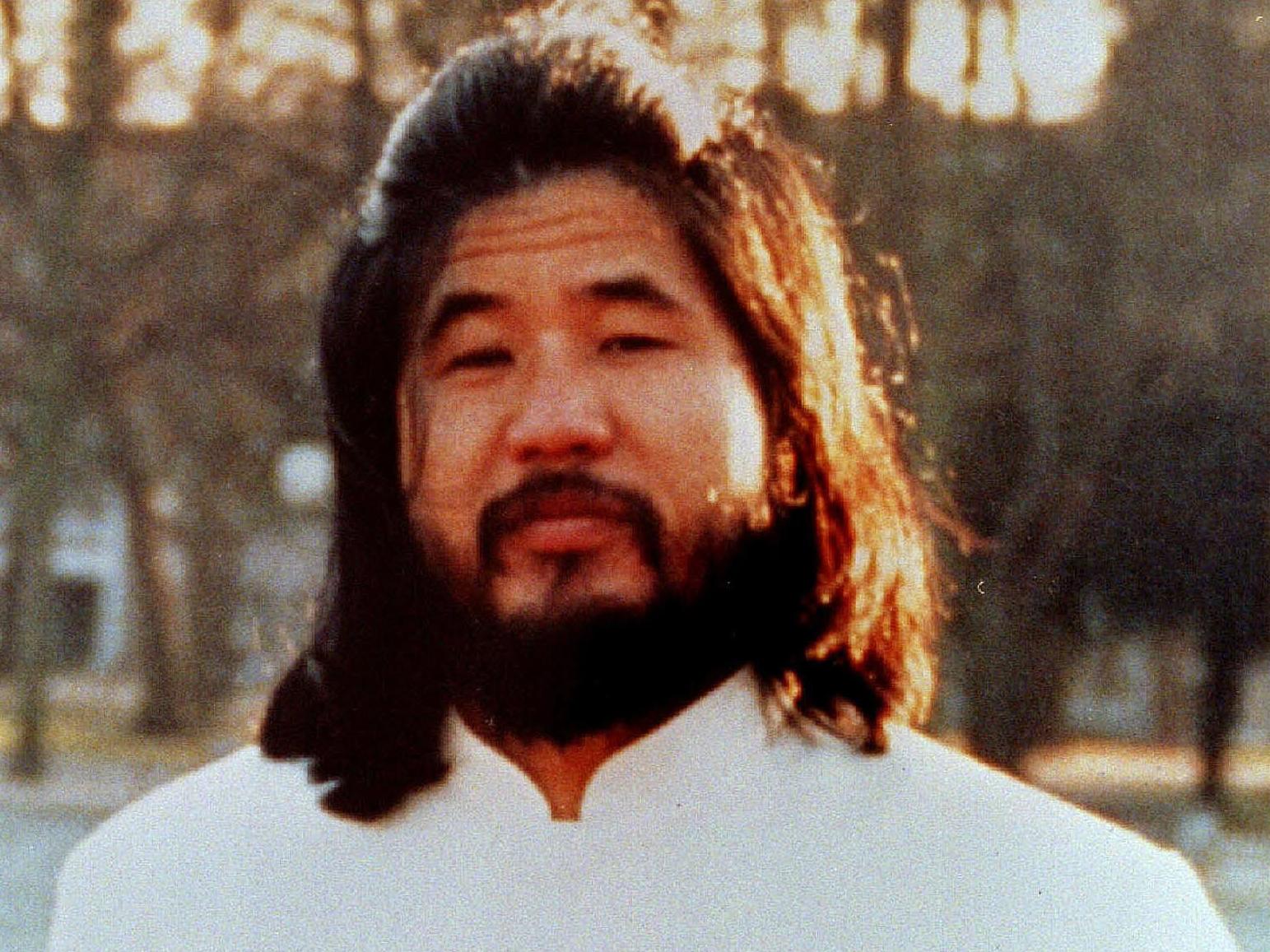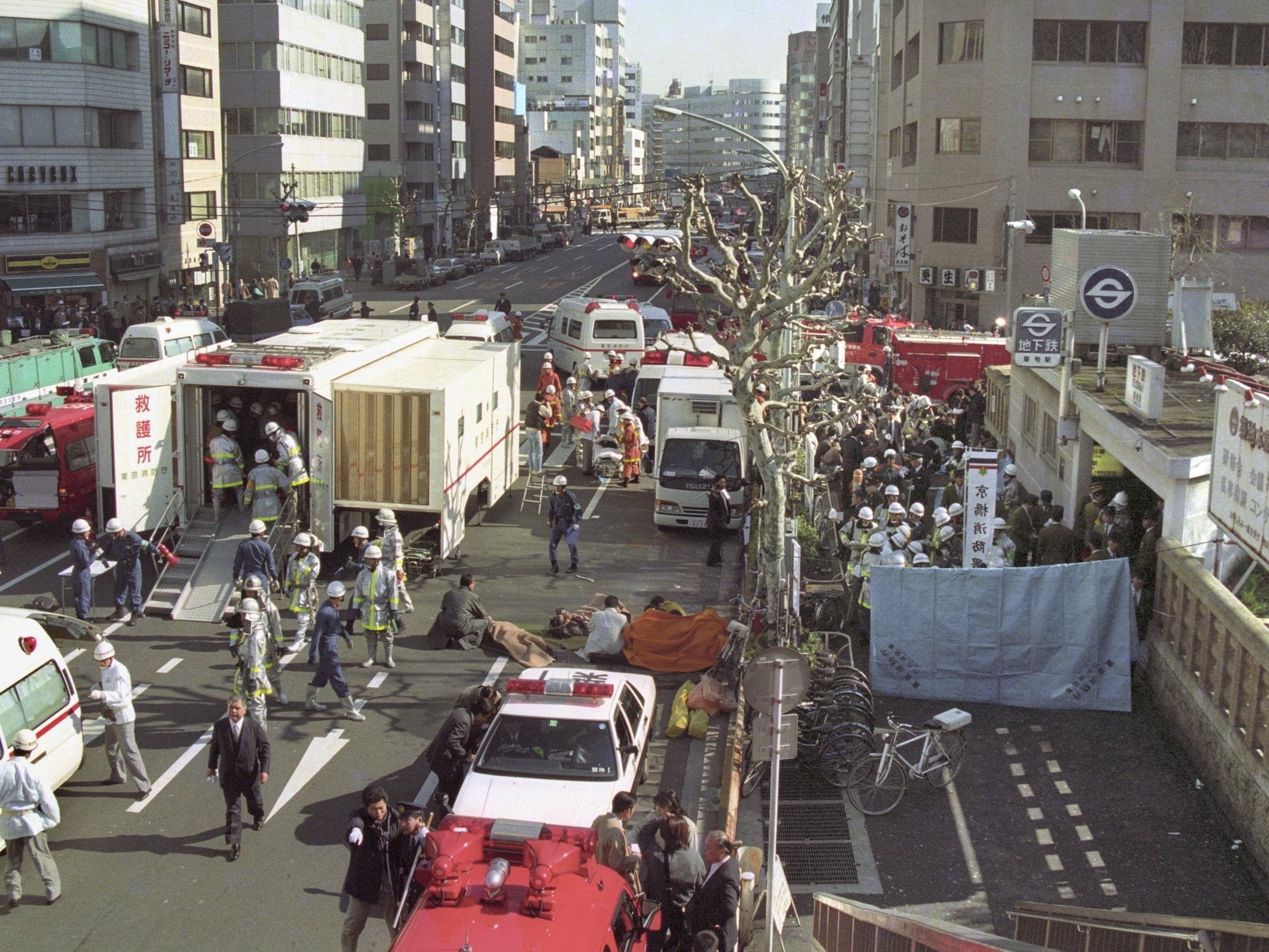Shoko Asahara: Who was the Japanese cult leader who masterminded the lethal sarin attack on Tokyo's subway?
Aum Shinrikyo founder, who believed himself to be the reincarnation of Buddha, orchestrated devastating domestic terror incidents and believed the apocalypse to be imminent
Your support helps us to tell the story
From reproductive rights to climate change to Big Tech, The Independent is on the ground when the story is developing. Whether it's investigating the financials of Elon Musk's pro-Trump PAC or producing our latest documentary, 'The A Word', which shines a light on the American women fighting for reproductive rights, we know how important it is to parse out the facts from the messaging.
At such a critical moment in US history, we need reporters on the ground. Your donation allows us to keep sending journalists to speak to both sides of the story.
The Independent is trusted by Americans across the entire political spectrum. And unlike many other quality news outlets, we choose not to lock Americans out of our reporting and analysis with paywalls. We believe quality journalism should be available to everyone, paid for by those who can afford it.
Your support makes all the difference.Japanese cult leader Shoko Asahara, 63, has been hanged for his role in masterminding a sarin attack on the Tokyo underground in 1995.
Asahara, whose real name was Chizuo Matsumoto, led the Aum Shinrikyo group, which mixed Tibetan Buddhist and Hindu teaching with Doomsday prophecies and occultism.
The attack on 20 March 1995 left 13 people dead and more than 6,000 injured, many of whom were left blind or disabled by coming into contact with the toxic nerve agent, first developed by Nazi chemists in the Second World War.
Five members of Aum Shinrikyo entered the underground system at different points during the Monday morning rush hour, each wearing surgical masks and carrying packets of liquid sarin wrapped in newspapers inside plastic bags amounting to almost a litre each – when coming into contact with just one drop the size of a pinhead is enough to prove fatal.
The five also carried umbrellas with them bearing sharpened tips, which they used to pierce the packets and release the volatile chemical before exiting the trains in the company of their five getaway drivers.
Ikuo Hayashi carried out his attack on the Chiyoda Line, Kenichi Hirose and Toru Toyoda on the Marunouchi Line and Masato Yokoyama and Yasuo Hayashi on the Hibiya Line.
The puddles and leaking bags caused mass panic as commuters began to feel the effects of the fumes, several foaming at the mouth and coughing up blood. Emergency services personnel brought 688 people to local hospitals while 5,510 more arrived by their own means.

Ambulances crews were subsequently criticised for their hesitant handling of the incident, as was the subway authority, who failed to halt several trains when word spread.
The public were particularly angry about the failure to respond quickly because Aum Shinrikyo had used sarin in a previous attack nine months earlier, killing eight and injuring more than 500 in Matsumoto by dispersing the gas from a converted refrigeration truck.
Asahara and his acolytes had carried out these acts of bioterrorism because they believed the apocalypse was inevitable and would be caused by a third world war between the US and Japan. Only devotees of Shoko, who claimed to be the reincarnation of Buddha, would survive the coming nuclear armageddon and live with him in the mythic mountain kingdom of Shambhala.

Shoko was born partially blind in Yatsushiro in 1955, the son of tatami mat manufacturers. Known as a bully at school, he graduated and studied acupuncture and traditional Chinese medicine before being convicted of prescribing pharmaceuticals without a licence in 1981.
He became interested in astrology and Taoism and founded Aum Shinrikyo as a yoga school in 1987, basing his teachings on he Vajrayana scriptures and the Bible and publishing his doctrine, Declaring Myself the Christ, in 1992.
His peculiar faith had 10,000 followers in Japan and 30,000 in Russia at the peak of its popularity, operating a compound at the base of Mount Fuji where its members developed the chemical weapons used.
In 1990, the organisation sought to gain a legitimate foothold in Japanese society by running candidates in upper house elections but were unsuccessful, a source of bitterness to Asahara who subsequently began targeting the public.
The group resurfaced in 2000, having disassociated itself from Asahara and his methods following his arrest, and rebranded itself as Aleph, paying compensation to the victims of its earlier attacks. They are still regarded with suspicion and their offices in southern Tokyo remain under constant surveillance.

Join our commenting forum
Join thought-provoking conversations, follow other Independent readers and see their replies
Comments